| Wednesday, 19 December 2012 06:27 |
Talking Watches and Clocks for the Blind and Visually Impaired
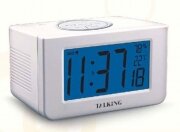
Reading the time of day is not always so easy for those of us with poor eyesight, visual impairment or blindness. Fortunately a number of products such as talking watches are available to give anyone with sight difficulties the perfect solution.
If you like to have all the latest features then you won’t be disappointed with the variety of extra’s that are available on the range of talking watches, clocks and alarms. Or if your preference is to keep things simple and go for a more classic style watch or clock you won’t be disappointed either.
|
|
Read more...
|
|
| Saturday, 15 December 2012 07:02 |
Electric Aids for the Elderly - Remote Control Switches and Sockets
Being able to access switches and sockets in difficult to reach places about the house can be a nuisance, particularly for somebody with restricted mobility.  Thankfully HomeCare Technologies have a number of remote control sockets and remote control switches that makes turning appliances, lights, tv’s etc on and off so easy you can do it from the comfort of your chair with the press of a button. Thankfully HomeCare Technologies have a number of remote control sockets and remote control switches that makes turning appliances, lights, tv’s etc on and off so easy you can do it from the comfort of your chair with the press of a button.
These wireless remote control switches require no wiring or installation – simply plug the receiver into an existing socket, plug the appliance in to the receiving unit and you can then switch the appliance on/off using the hand help remote control. What could be easier!
|
|
Read more...
|
| Wednesday, 05 December 2012 06:02 |
Epilepsy and Seizure Monitors in Ireland
 There are estimated to be 37,000 people in Ireland with Epilepsy, and approximately 10,000 with uncontrolled epilepsy. Seizures – where a temporary malfunction of normal brain activity occurs - can be experienced by as many as 1 in 20 of the population during their lifetime. There are estimated to be 37,000 people in Ireland with Epilepsy, and approximately 10,000 with uncontrolled epilepsy. Seizures – where a temporary malfunction of normal brain activity occurs - can be experienced by as many as 1 in 20 of the population during their lifetime.
For many people seizures are experienced for only a short  period of time during their lives while others are able to control seizures through medication. People diagnosed with Epilepsy have a tendency to experience recurring seizures. In such cases monitoring those diagnosed with epilepsy and at risk of a seizure is something that is of high priority to both the individual and their families, particularly at night time. period of time during their lives while others are able to control seizures through medication. People diagnosed with Epilepsy have a tendency to experience recurring seizures. In such cases monitoring those diagnosed with epilepsy and at risk of a seizure is something that is of high priority to both the individual and their families, particularly at night time.
|
|
Read more...
|
| Wednesday, 28 November 2012 09:45 |
Communication Aids for the Elderly
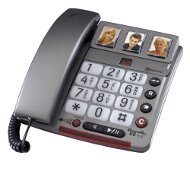
Telephones and mobile phones have advanced considerably in recent times and these improvements have resulted in a wide range of communication aids for the elderly to help the elderly and hard of hearing with their everyday communication needs.
In fact as technology has improved, telephones and mobile phones for the hard of hearing and the elderly have become increasing simple to use while offering numerous advanced features for just about every need imaginable. Here we give a quick overview of some the key features  now available with today’s latest phones and mobile phones for the elderly and hard of hearing: now available with today’s latest phones and mobile phones for the elderly and hard of hearing:
|
|
Read more...
|
| Wednesday, 21 November 2012 08:13 |
Personal Alarms for the Elderly in Ireland
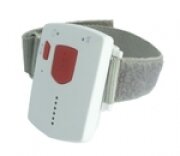 For those living alone or alone for long periods of time the comfort of knowing that help is only the press of a button away is reassuring for them and their nearest and dearest. Personal alarms are used by the elderly, people with restricted mobility as well as anyone recovering from illness or with a chronic condition. For those living alone or alone for long periods of time the comfort of knowing that help is only the press of a button away is reassuring for them and their nearest and dearest. Personal alarms are used by the elderly, people with restricted mobility as well as anyone recovering from illness or with a chronic condition.
Personal alarms have developed significantly in recent times and there is now a wide choice of personal alarms available to cover just about every situation imaginable.

Choosing the right personal alarm is obviously very important as there are a number of factors to consider, such as:
|
|
Read more...
|
| Saturday, 03 November 2012 07:31 |
Enuresis Bedwetting Alarms in Ireland
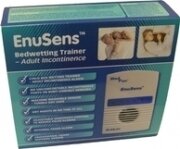
Bedwetting or nocturnal enuresis is commonly associated with younger children, but is also experienced in adults of all ages. The elderly are also prone to bedwetting through a variety of causes which could include diabetes, infection, neurological disorders, anxiety and other medical or emotional disorders.
Although bedwetting is most commonly associated with night time, daytime wetting is also a common occurrence among those most prone to bed wetting.
|
|
Read more...
|
| Monday, 29 October 2012 10:26 |
Bed Wetting Alarms
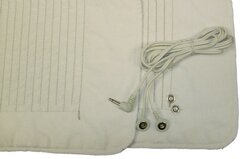 Bed wetting is a common problem for many different types of people. While commonly associated with bed wetting in children [also called nocturnal enuresis], adult bed wetting or adult incontinence can also be a common occurrence particularly among the elderly and those with disabilities. Bed wetting is a common problem for many different types of people. While commonly associated with bed wetting in children [also called nocturnal enuresis], adult bed wetting or adult incontinence can also be a common occurrence particularly among the elderly and those with disabilities.
|
|
Read more...
|
| Monday, 08 October 2012 15:33 |
Pendant Alarms
Pendant alarms are the ideal solution for people living alone or at risk of falling and allow the individual to raise an alarm and call their carer[s]. These devices are becoming more sophisticated as technology improves but fortunately they are also easy to set-up and install.
Alarm pendants for the elderly are most commonly supplied as a pendant worn around the neck on a loose fitting lanyard or worn round the wrist on a wrist strap. Both types are designed to ensure that the person at risk has easy access to the device should they need to activate an alarm.
|
|
Read more...
|
| Monday, 08 October 2012 15:23 |
Panic Alarms for the Elderly in Ireland
A panic alarm gives peace of mind as well as being a practical solution for both the person at risk and their carers. Knowing that help is only the press of a button away is comforting for all concerned, and thankfully there are a large variety of panic alarms available today.
The elderly, those at risk of falling, people with physical disabilities, dementia patients and people with chronic illness are all users of a panic button or alarm pendant in Ireland. Carers are notified and can respond quickly to the alarm being raised.
|
|
Read more...
|
| Tuesday, 02 October 2012 09:24 |
Fall Prevention
Falls in the elderly are a concern for carers for obvious reasons. An elderly person falling can lead to a variety of issues including personal injury as well as loss of confidence and a reduced quality of life. Common injuries from falling include fractures to wrists and femurs which can then lead on to bigger problems.
Therefore best practice is to focus on preventing falls in the elderly. As well as some basic practical steps that should be taken, technology also has it’s part to play in fall prevention.
|
|
Read more...
|
| Tuesday, 02 October 2012 08:56 |
Alarms for the Elderly
Advances in communication and wireless technology has lead to the development of a wide choice of Alarms for the Elderly and those living alone. While this article focuses on the elderly, these products are in fact commonly used by customers with physical disabilities as well as those recovering from illness or with a chronic condition.
Personal Alarms and Panic Buttons for the elderly come in a variety of formats including Pendant Alarms worn around the neck or as a wrist strap. They provide both the individual and their families, carers and neighbours with the peace of mind that their personal safety is protected and that help is only the press of a button away.
|
|
Read more...
|
|
|
<< Start < Prev 1 2 3 Next > End >>
|
| Page 3 of 3 |